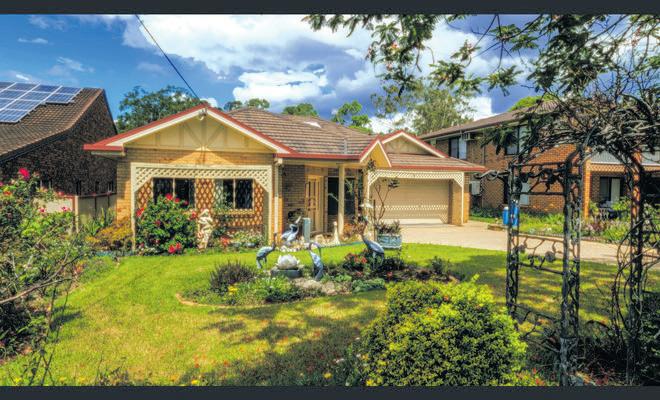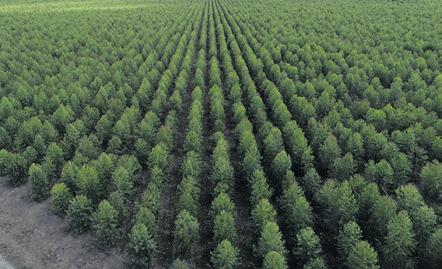
4 minute read
PUBLIC SUBMISSIONS OPEN FOR INDEPENDENT REVIEW OF COMMONWEALTH DISASTER FUNDING
Australians who have been through natural disasters are being encouraged to share their experiences as part of the Independent Review of Commonwealth Disaster Funding.
The review is seeking input on community experiences with funding programs, processes and support, understanding of the roles of the different levels of government during a disaster and thoughts on how the Commonwealth could support communities to reduce their disaster risk.
Public submissions opened last month, and will continue to accept feedback until 10pm AEST on Friday, 14 July 2023.
Mr Andrew Colvin APM OAM, a former Australian Federal Police Commissioner who led national recovery efforts after the 2019-20 Black Summer Bushfires, is leading the review.
The review is also considering how government investment in disaster risk reduction, preparedness, response, recovery and resilience can better support both a national system and the scale of transformation needed to build resilience to the extreme disaster events Australia is projected to experience over coming decades.
A final report is expected to be provided to Government in April 2024.
Minister for Emergency
TAFE NSW HELPING LOCAL HAIRDRESSERS TO ‘SPOT A SPOT’ AND SPEAK UP TO SAVE LIVES
Management, Murray Watt said the review was a significant step to ensure Australia is well positioned to respond to natural disaster events into the future.
“This review is the next step in the Albanese Government’s ongoing work to ensure Australia is better prepared for, and responds faster to, future natural disasters,” Minister Watt said.
“We want to make sure our disaster funding model is current, effective and best supports Australians before, during and following a disaster.
“Submissions have been open for a few weeks, but we want to make sure that everyone who wishes to contribute can do so – from councils to small business owners, primary producers and individuals.
“It is important that this review considers views across all sectors so that we can better understand how we can improve current disaster supports and response arrangements, and I’d encourage as many people as possible to get involved.”
To provide your feedback and input, ask questions about the public submissions, and access more information about the review, please visit the National Emergency Management Agency’s website https://nema. gov.au/about-us/ governance-andreporting/reviews/ Independent-ReviewDisaster-Funding
Northern Rivers hairdressers, barbers, and beauticians can access a new TAFE NSW course to gain the skills to ‘spot a spot’ and speak up if they see something.
Australia has the highest rate of melanoma in the world, with one Australian diagnosed every 30 minutes and around 1300 deaths every year.
Developed in collaboration with TAFE NSW, the Australian Melanoma Research Foundation, Hair and Beauty Australia, Keune, and Airyday, the course aims to increase early awareness and prevention of skin cancer in communities across Australia.
TAFE NSW
Hairdressing and Barbering Head Teacher Vanessa Grant said the ‘Spot a Spot’ course is the frst to focus on hairdressers, barbers, and beauticians working in a salon environment.
“The course showcases real-life case studies of hairdressers and beauticians with their clients and the process they went through to raise concerns about skin changes that turned out to be skin cancer,” said Ms Grant.
TAFE NSW will offer free places to TAFE NSW apprentices studying Certifcate III in Hairdressing and Barbering and Certifcate IV in Beauty to help skill the future workforce in these important conversations.
“It’s a powerful tool for the hair and industry, and arms TAFE NSW apprentices with real-world skills to confdently communicate concerns with their clients.”
Maureen Harding, the National President of HABA, said the course will help hair and beauty staff to start the conversation with their clients.
“I’ve been a hairdresser for 50 years and have had these conversations with my clients, including ones that turned out to have lifesaving outcomes,” said Ms Harding. “What’s great about this course is that it can be completed in an hour and on a mobile device. It offers practical information about what makes a spot suspicious, and different ways to start a conversation with a client about a subject that can be very scary.”
Dr Wayne Harvey from the Australian Melanoma Research Foundation said the survival rate from advanced melanoma has improved over the last decade, largely due to improvements in detection and treatment.
“We know 90% of melanomas can be treated successfully if caught early. Early detection is associated with high survival rates. Hairdressers and barbers are in regular contact with their clients and access hard-to-see spots, so they are very well placed to recognise skin changes,” said Dr Harvey.
“Helping the industry to develop the skills to recognise a suspicious spot and then confdently talk about skin changes with their clients has the potential to signifcantly contribute to reducing the incidence of melanoma long term.”
Registration deadline for Project Intervene extended
The NSW Government will extend the Project Intervene program to ensure existing homes are up to standard and restore integrity in the construction and building industry.
The program allows Owner Corporations to use the expertise of the NSW Building Commissioner and his team with negotiation and mediation with developers in buildings that may have defects.
By preventing strata committees and developers engaging in costly and lengthy court battles, Project Intervene offers fnancial savings to eligible apartment owners let down by poor quality construction work.
Registrations will be extended to November instead of wrapping up at the end of this month.
Since the program launched in mid-2022 about 100 owners corporations let down by developers have taken up the support provided and 49 building inspections have been completed.
The assistance includes help repairing serious defects in the common property of buildings, including waterproofng, fre safety systems, structural systems, building enclosure and building services.
The NSW Government has also announced plans to restore confdence in the sector and to ensure we have quality built homes in NSW.
The Government’s reform agenda will ensure those who purchase property in NSW can have even greater confdence in the quality of the work by:
• Creating the state’s frst NSW Building Commission - a single body to oversee the regulation, licensing and oversight of the industry.
• Creating a new Building Act which utilises plain English. The new Building Act will consolidate and modernise many pieces of legislation, some decades old, scattered throughout the state’s statute books. Project Intervene to ensure residential apartment buildings with defects are brought up to an acceptable standard.
“The housing supply crisis that our state is facing will require a surge in construction, if NSW is to retain its young people and families.
“Ensuring existing apartment buildings are good quality, well constructed buildings will give families greater confdence in this critical industry.
NSW Building Commissioner David Chandler said:
“Project Intervene uses the powers of the Residential Apartment Building Act to compel developers and builders to remediate serious defects.
“While all owners corporations should always take their own legal advice, Project Intervene offers an alternative or parallel pathway to getting serious defects rectifed in apartment buildings.”














